Poker Backing Deals Gone Wrong
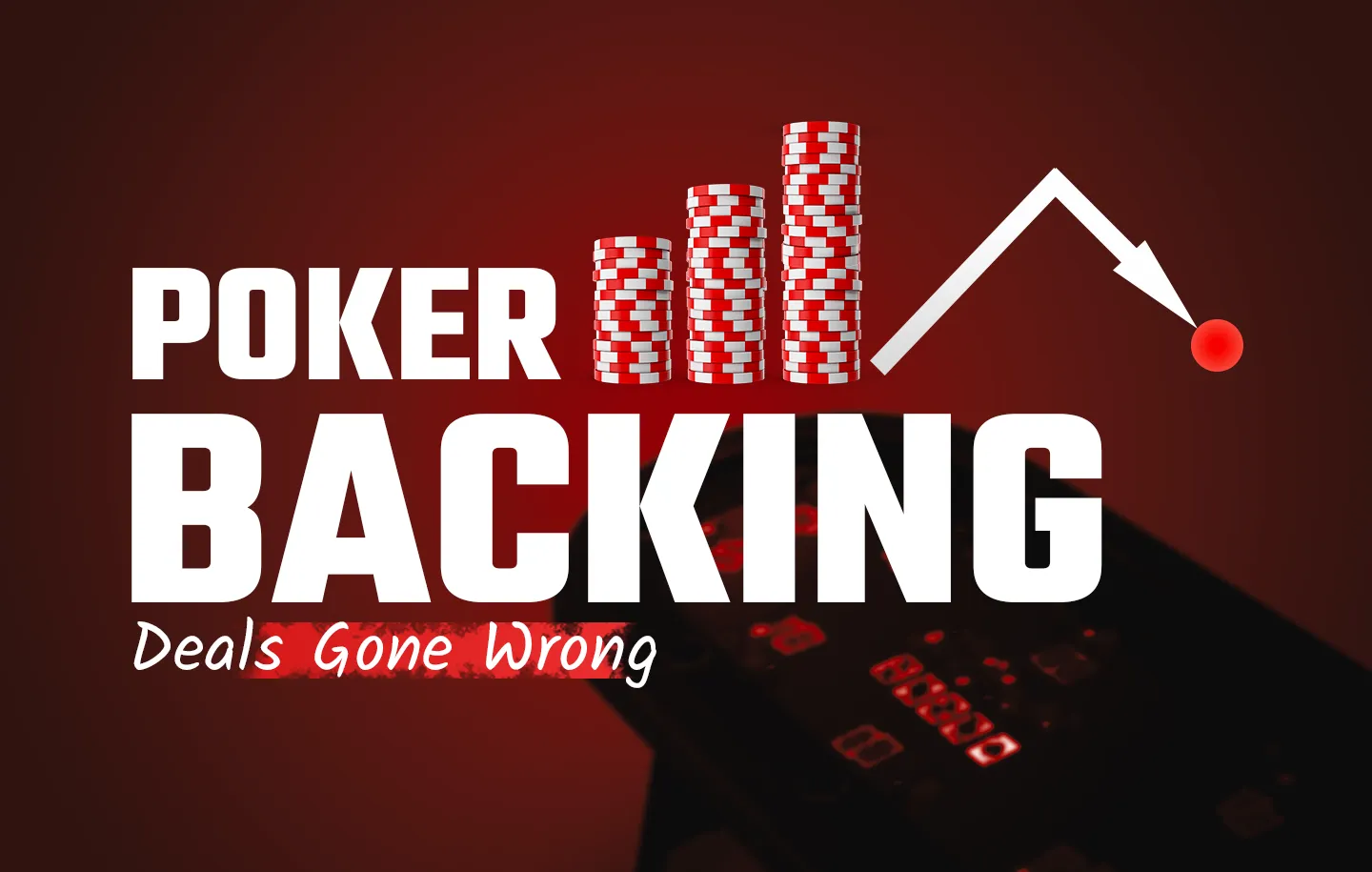

- Fact Checked by: PokerListings
- Last updated on: September 26, 2025 · 9 minutes to read
Poker staking, also known as poker backing, provides talented players with limited funds the opportunity to compete at higher stakes without risking their own bankroll. In return, backers receive a share of profits, usually through makeup agreements that cover prior losses before winnings are split.
While this arrangement can be mutually beneficial, it heavily relies on trust. Misunderstandings, ego, greed, or outright scams have led to many deals collapsing, sometimes with disastrous consequences.
The following cases highlight some of the most infamous failed backing deals.
Erick Lindgren Loan and Backing Controversies
Erick Lindgren, also known as “E-Dog,” was once one of the most popular poker players in the world. He won two World Poker Tour (WPT) titles, two World Series of Poker (WSOP) bracelets, and was named WSOP Player of the Year in 2008. At his peak, he earned over $8 million in live tournaments and became one of the most recognizable faces of modern poker.
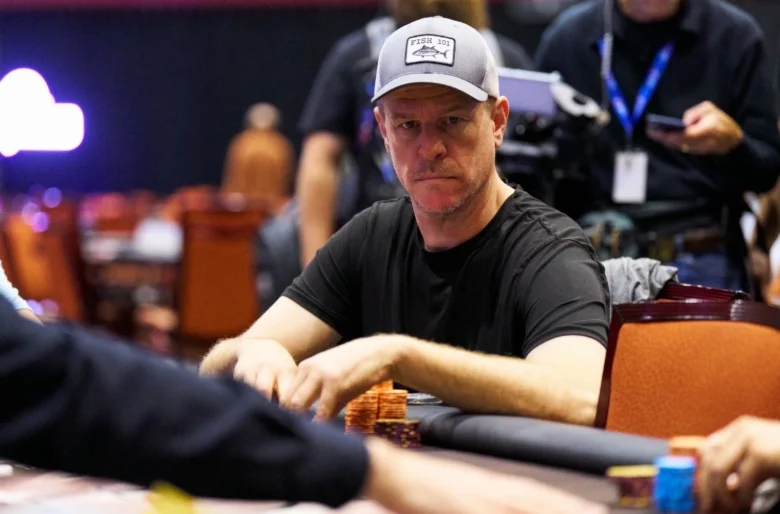
During the 2000s poker boom, Lindgren was a member of Team Full Tilt at Full Tilt Poker, one of the biggest online poker rooms of the era. As a Full Tilt pro, he appeared on nearly every televised poker show when the game first went mainstream.
Outside the tables, Lindgren developed a reputation for compulsive gambling. He regularly bet on fantasy sports leagues, secret prop bets, and high-stakes side action, sometimes putting up more than $10,000 on a single fantasy football wager.
Mounting Debts
Behind the scenes, however, money problems mounted. In the Lederer Files interview, Howard Lederer revealed that Full Tilt loaned Lindgren several million dollars. Erick Lindgren was supposed to get a $2 million loan from Full Tilt Poker in April 2011.
An error caused Lindgren to receive the payment twice, but he didn’t refund the additional $2 million. Despite multiple calls for a refund from Full Tilt, Lindgren did not respond. He also took on numerous private loans, often borrowing from one person to pay another.
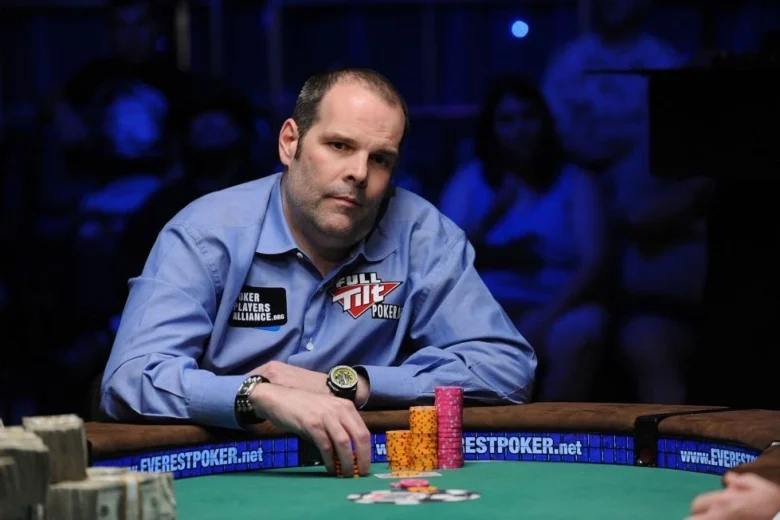
By the end of 2012, it was no longer possible to hide Lindgren’s problems. He went to a rehab center for people with gaming problems and said in interviews that he had lost control. But he had too many debts to pay.
By 2013, rumours on poker forums had become headlines: Erick Lindgren allegedly owed between $10 million and $12 million to fellow pros, casinos, and businesses. He lost the trust that made him one of the most backed stars in the game. It got so bad that PokerStars sued him for $2.5 million in February 2015.
Lindgren filed for Chapter 11 bankruptcy in Nevada a few months after being sued by PokerStars in June 2015, saying that he owed more than $10 million and had less than $50,000 in assets.
For a poker player who had won millions, it was a significant setback and a stark reminder that no poker player can escape poor decisions.
The David “Chino” Rheem Backing Saga
Chino Rheem‘s aggressive and daring attitude perfectly complemented the poker boom of the early 2000s.
In 2008, he achieved his breakthrough when he placed seventh in the World Series of Poker (WSOP) Main Event, winning $1,772,650. By 2013, Rheem had won two WPT titles, which at the time was a feat that only a few players could claim. However, despite $8 million in live earnings, Rheem became notorious for unpaid debts and shady backing deals.
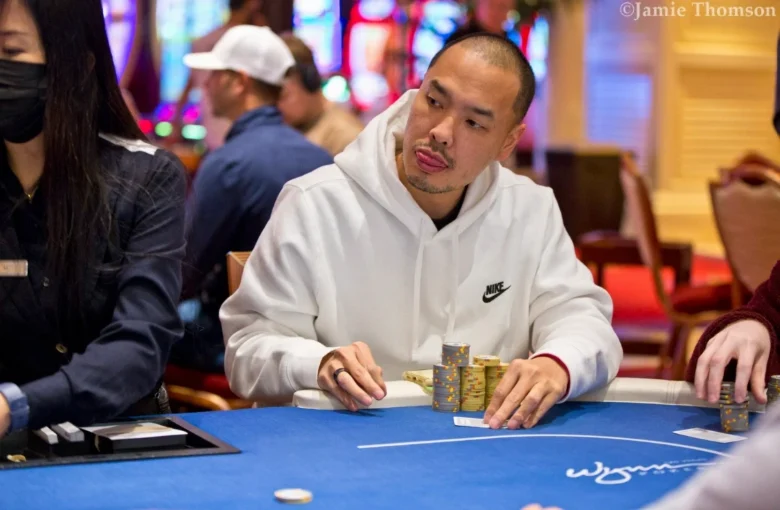
He won the $20,000 6-Max No-Limit Hold’em tournament at the start of the Epic Poker League on August 12, 2011, for a $1 million prize. At the time, reports indicated that he did not take home the full amount. He was backed for about 70%, and under the backing agreement, 10% of the backing was allocated to charity. The result left him with approximately 20%, or around $200,000, before accounting for swaps.
Some reports indicate that 8-10% swaps brought his net take-home close to $100,000 to $120,000.
Tainted Reputation Over Unpaid Debts
People in the poker community and on the TwoPlusTwo forum were discussing Rheem’s failure to honor his debt before he won the EPL. This was infamously known as “getting Chino’d.”
Will “molswi47” Molson said he accidentally sent $40,000 to Rheem (and another to Michael “The Grinder” Mizrachi) before the EPT London 2010 event. Mizrachi gave back his money right away, but Rheem, according to Molson, didn’t and later sent a text saying, “I’m broke, and I can’t get you the money.”
The Epic Poker League encountered issues, with its first winner facing public accusations of not repaying his backers and lenders. The EPL’s Standards & Conduct Committee responded by placing Rheem on probation in August 2011. Stephen Martin led the committee, which also included Matt Savage, Annie Duke, Michael McDonald, and other members.
Among the many disputes, one notable action stood out: Rheem is said to have paid back Ben Lamb in full after the EPL win, while others received a smaller amount, around 10-20 percent.
Notably, Lamb, and some say Erik Cajelais as well, was paid in full at the cage, while many others were not. Rheem hasn’t kept quiet. He talked about his life and his shortcomings in interviews with PokerListings:
I’ve done some things I’m not proud of. I man up to it. I admit it. … The things people say online are not necessarily all true, but there is some truth in what they say.
He discussed learning from mistakes and stated that his primary goals are to eliminate debt and become a better person.
Maurice Hawkins Ordered to Repay $115,828 to Backer Randy Garcia
In March 2017, Randy Garcia staked Maurice Hawkins. At that point, Hawkins had won nine WSOP Circuit gold rings and about $2.3 million in live tournaments. Garcia mentions that he started backing Hawkins, giving him a bankroll for half of Hawkins’ action.
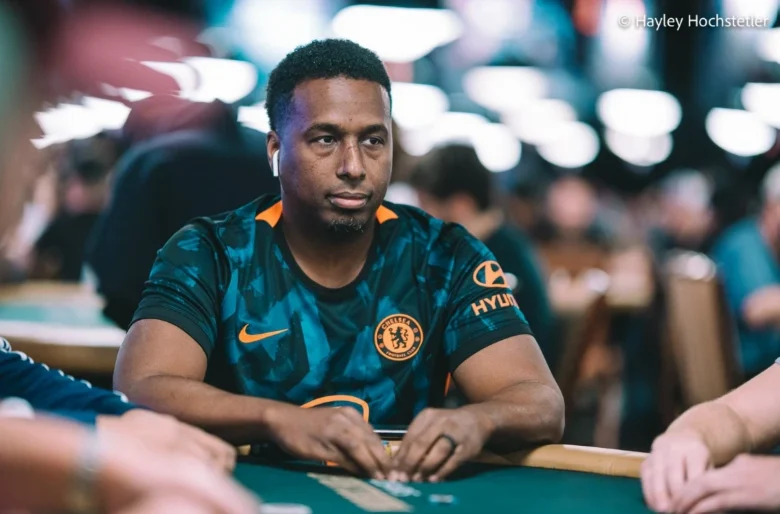
He claimed he lost some money playing blackjack early on, and then he continued to use his funds to play throughout the summer. Hawkins disagrees with some details, but both sides admit they were involved in the 2017 deal.
Court Battle
Garcia filed a lawsuit in Palm Beach County, Florida, after the repayment talks didn’t work out (Case No. 502019CA000052XXXXMB). On April 9, 2019, the court made a Default Judgment on Liability against Hawkins.
After a damages hearing on May 21, 2019, the court awarded $103,000 in damages, $12,377.34 in prejudgment interest, and $451 in costs, totaling $115,828.34. The court also kept the discretion to enforce the judgment.
At the time, Hawkins told poker media outlets:
We have handled this amicably.
He stated that some of the disagreement centered on loans and deals that were unrelated to the dispute, and he added that he had been making the payments. Initially, Garcia requested that the media not cover the story while the two parties discussed a payment plan.
Later, documents revealed that the two had signed a forbearance agreement outlining a repayment plan: $2,000 per month plus 15% of the gross winnings, with the option to buy out the debt for 72.5% of the remaining amount.
This setup, involving a base monthly payment plus a share of cash, is standard in deals for post-judgment forbearance in poker staking cases.
On August 23, 2019, Hawkins came in second place in the WSOP Circuit Foxwoods $1,700 Main Event, which paid out $88,557. Under the terms of the forbearance, Garcia’s lawyer requested 15% of the gross cash, which is approximately $13,028.55.
Hawkins answered that firing two bullets should bring down the 15% number a little. A few days later, he sent an email saying that the first deal wasn’t “doable” and suggested paying $2,500 a month instead.
Garcia’s lawyer pushed back, and Garcia even offered Hawkins a $60,000 lump sum to settle the case. Hawkins turned down the offer.
The Debt Still Unsettled
In May 2022, Garcia reiterated his complaints in public. He told poker media outlets that Hawkins had only paid about $10,000 in four years and planned to pursue post-judgment collection.
Hawkins said, “I will pay him when I can,” and he provided proof that the $35,000 had been repaid, along with $20,000 in supporting documentation.
Garcia is still trying to enforce the ruling, stating that only a small amount has been repaid over the years.
Nick Marchington and the 2019 $152,000 WSOP Main Event Lawsuit
Nick Marchington, a 21-year-old poker player from the UK, sold some of his action before cashing in the big one in the 2019 World Series of Poker (WSOP) Main Event for $1,525,000. He finished seventh out of 8,569 entrants. It looked like the perfect poker story.
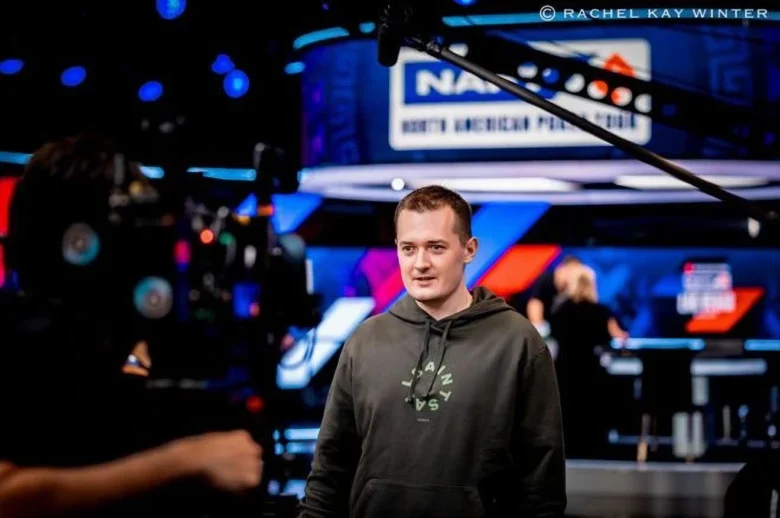
This big score brought a lot of attention to him, but it also led to one of the most public staking disputes the game has ever seen. David Yee and Colin Hartley, two backers from a small staking group called C Biscuit Poker Staking, filed a case in Clark County, Nevada, less than 24 hours after his massive score.
The duo alleged that Marchington breached the deal by pulling out of a deal that would have given them 10% of his action in all WSOP games, including the Main Event. They sued him for about $152,000, which is 10% of his winnings, plus fees and other damages.
Marchington’s defence was straightforward: he stated that he had cancelled the deal before registering for the Main Event. He claimed that he gave the backers their money back in cash before Day 2, which means that there was no binding agreement when he played.
Marchington posted on X to defend his action:
Initially I offered to refund with Pokerstars (how the piece was paid) then PayPal. Finally we settled on cash. My efforts to refund began BEFORE the Main Event; the refund got collected before my day 2 of the Main Event.
— Nick Marchington (@NickMarchington) August 3, 2019
The backers alleged that Marchington cancelled too late; Marchington asserts that he canceled before registering and repaid the stake in cash. It became a standard case of “oral vs. written” contract, which is one of the most common legal grey areas in poker staking.
The Court Battle
Immediately, the backers requested that the court freeze a portion of Marchington’s winnings.
Initially, Nevada courts placed a temporary hold on $152,000 while the case was being heard. It is a common practice in these kinds of lawsuits to protect funds. However, by the end of August 2019, a judge had lifted the temporary freeze, allowing Marchington to access the funds.
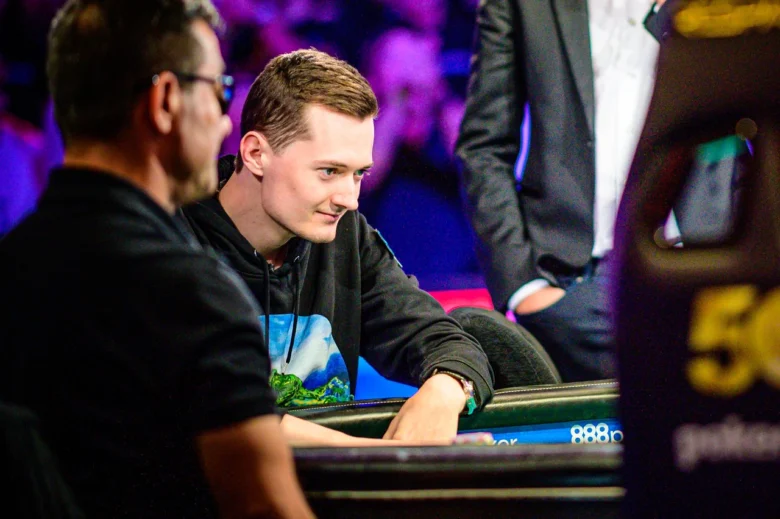
There is still no apparent reason why the judge allowed Marchington to receive the money. Initially, Marchington’s lawyers argued that the verbal agreement had been breached on time and that the backers had no right to any of Marchington’s winnings.
Yee and Hartley’s lawyers maintained that Marchington bought into the WSOP Main Event before returning the staking money. It means he played the event with their money. In cases like this, a lot depends on whether there is clear, written proof, such as contracts, payment records, or timestamped messages. Without that, disputes get messy and are costly to resolve.
Summary
Backing can turn ambitious players into champions, but when trust breaks down, it often ends in lawsuits, broken friendships, and ruined reputations. The cases of Rheem, Hawkins, and Marchington show that even poker’s best talents are vulnerable without transparency and written agreements. However, in Lindgren’s case, the bigger issue was gambling addiction and indiscipline, not lack of contracts.
The lesson is simple: in poker staking, clear contracts and accountability aren’t optional; they’re the only protection against disaster.
-
Stake.US Poker4.3
- Rakeback 5%
- $55 Stake Cash + 260K Gold Coins
T&Cs Apply | Play Responsibly | GambleAware
18+ | Play Responsibly | T&C Apply
-
Appeak Poker4.1
- 1,000 Chips Daily
- FREE 5,000 Chips
T&Cs Apply | Play Responsibly | GambleAware
T&Cs Apply | Play Responsibly | GambleAware
-
CoinPoker4.1
- 33% Weekly
- 150% up to 2000$
T&Cs Apply | Play Responsibly | GambleAware
+18 / T & C apply / Play responsible
-
- 2,500 Gold Coins + 0.50 Sweeps Coins
T&Cs Apply | Play Responsibly | GambleAware
18+ | Play Responsibly | T&C Apply
-
WSOP.com4.3
- Up to 70%
- 100% up to $1000
T&Cs Apply | Play Responsibly | GambleAware
T&Cs Apply | Play Responsibly | GambleAware
